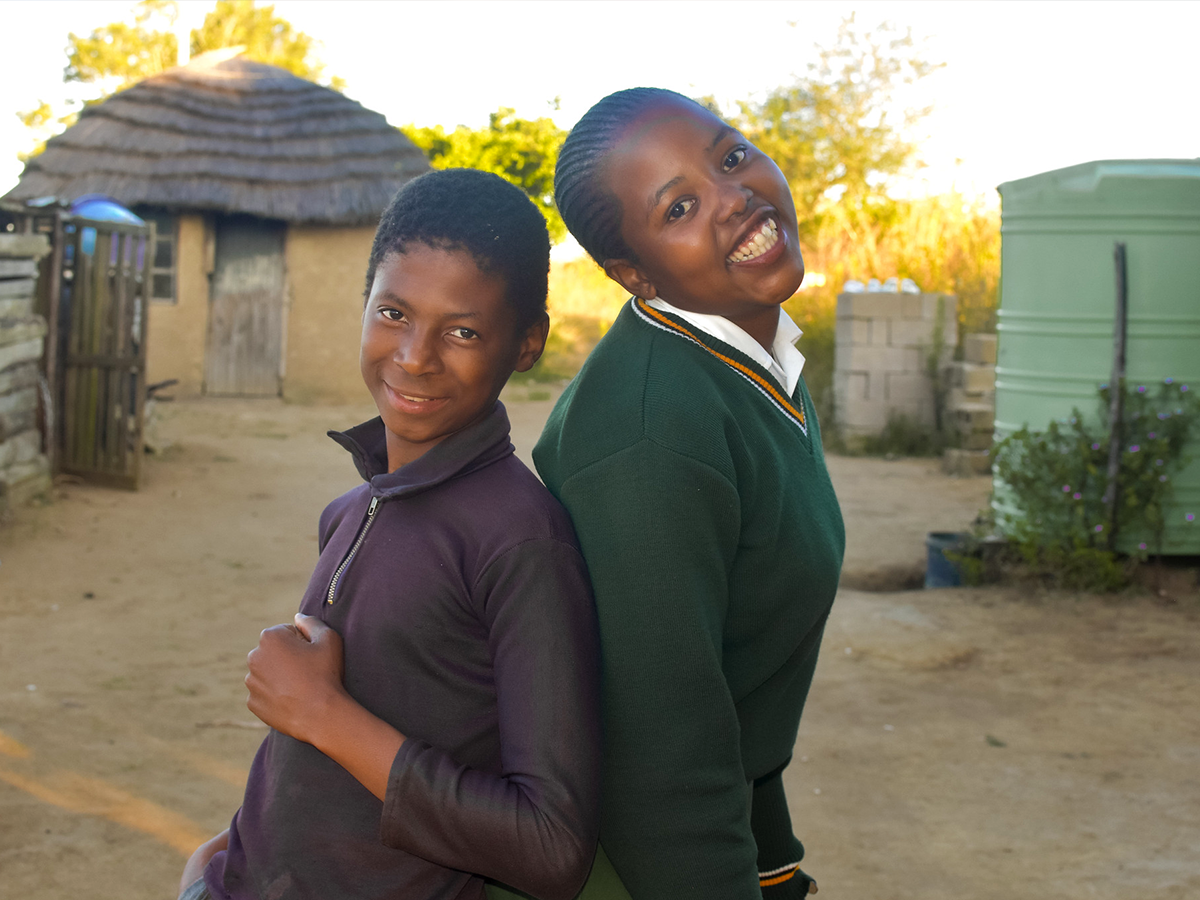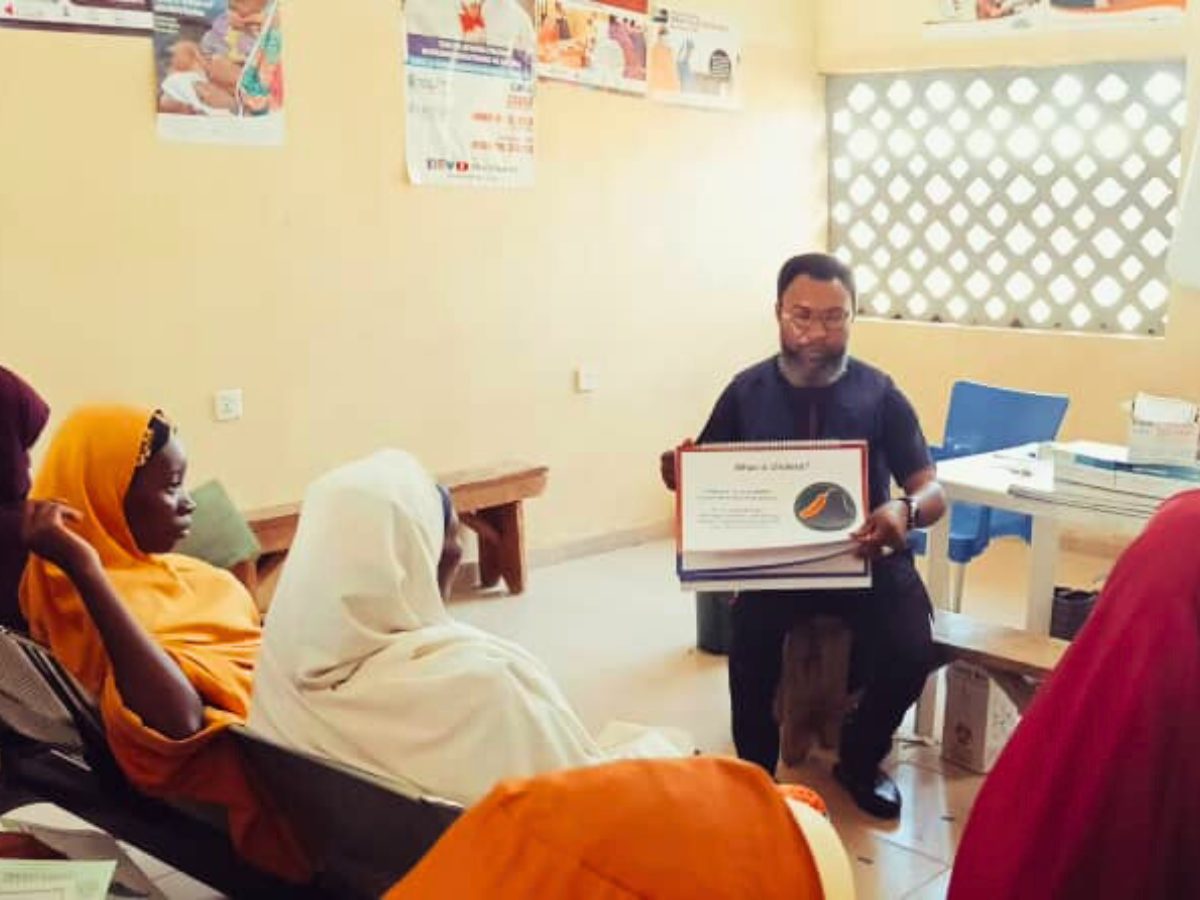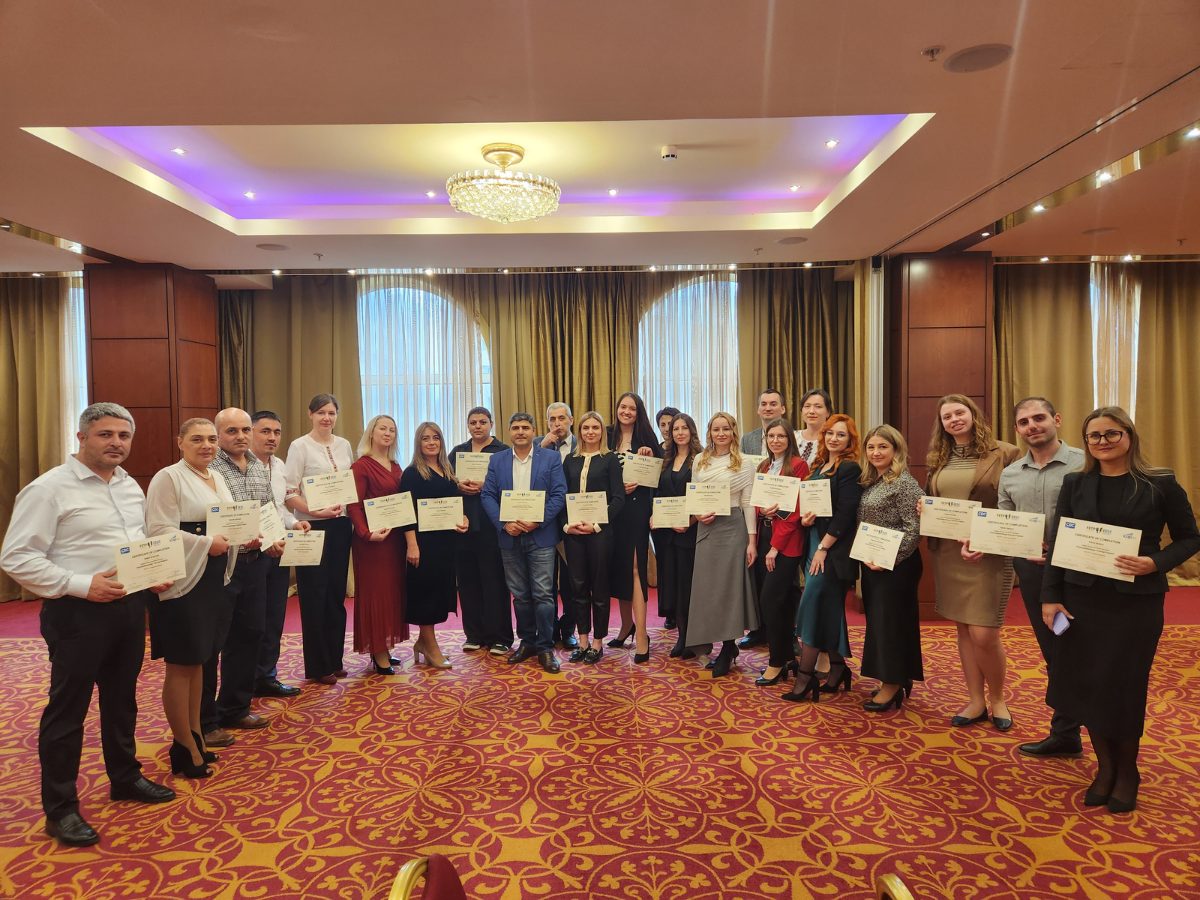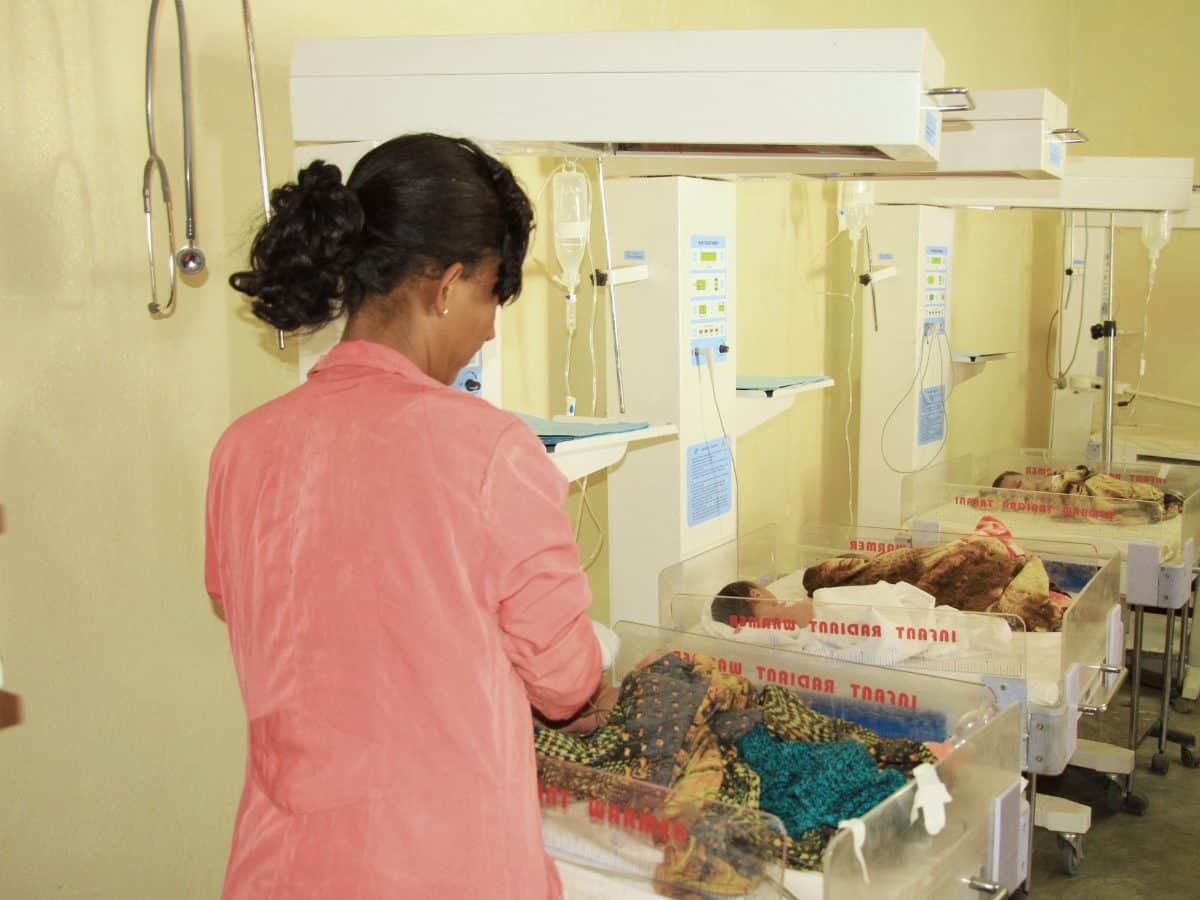In 2022, with funding from the U.S. President’s Emergency Plan for AIDS Relief (PEPFAR) through the U.S. Centers for Disease Control and Prevention (CDC), ICAP in collaboration with the Deputy Prime Minister’s Office (DPMO), Ministry of Health (MOH), and Central Statistical Office (CSO), conducted the Eswatini Violence Against Children and Youth Survey (VACS) to guide violence prevention efforts in Eswatini. ICAP hired and trained over 100 field staff, who interviewed nearly 8000 participants.
For about five months, the ICAP health data collectors engaged families to learn about the prevalence, nature, and consequences of physical, emotional, and sexual violence against children and youth as part of a long-term government strategic plan to reduce and prevent sexual violence and HIV prevalence in children, adolescents, and youth.
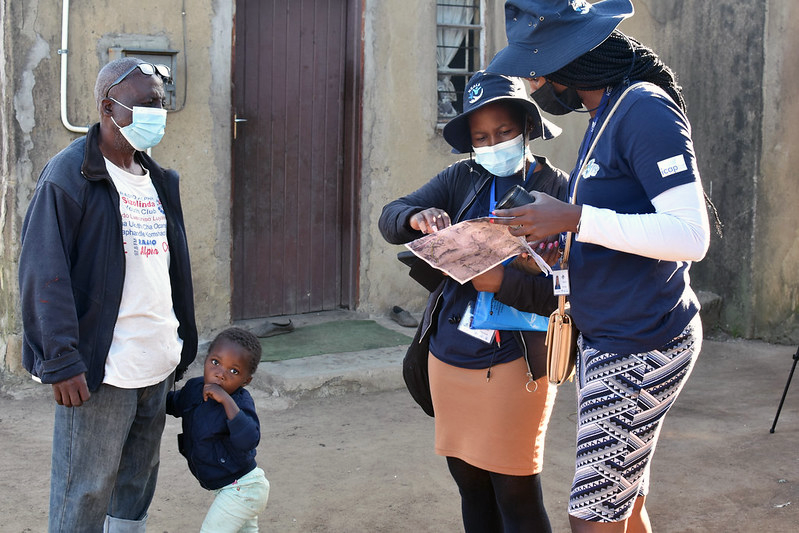
Siphiwe Shongwe, VACS Survey Manager [far right], and Letsiwe Dlamini, ICAP Health Data Collector, verifying geographic area while engaging a family head about members of his household
In 2007, Eswatini was the first country globally to conduct a VACS survey collecting national-level data on sexual, physical, and emotional violence against girls and young adult females. This second survey assesses experiences of violence for both boys and girls. The new survey found that one out of four females and nearly one out of three males experienced violence in their lifetime.
One out of 12 females 13-24 years old experienced lifetime sexual violence, and among 18-24-year-old females who experienced lifetime sexual violence, the perpetrator of the first incident was often known to the victim. Whereas sexual violence was more commonly experienced among females, physical violence disproportionately affected males.
However, in comparison with the 2007 Eswatini VACS, the more recent survey shows substantial improvements in reducing the prevalence of violence among females and significant reductions in childhood and lifetime sexual violence.

Source: togetherforgirls.org
“The second VACS survey allowed us to measure and compare progress on violence prevention measures in Eswatini,” said Siphiwe Shongwe, MPH, BSn, Evaluation and Health System Strengthening specialist at ICAP in Eswatini and VACS survey manager. “We also wanted to assess youth knowledge of medical, psychosocial, legal, and protective services so policymakers can continue to refine policies and strategies to protect the youth.”
On September 12, 2023, the Deputy Prime Minister’s Office Principal Secretary and the U.S. Ambassador to Eswatini officially launched the release of the survey’s final report at a meeting supported by ICAP. Seventy-four stakeholder representatives from organizations including PEPFAR, CDC, USAID, MOH, DPMO, ICAP, CSO, UNICEF, Ministry of Education, and other implementing partners participated in the meeting. Keynote speakers highlighted the need to utilize the results to inform policy direction and programming. “Violence against children is preventable,” said Najat Maalla M’jid, senior representative of the U.N. Secretary-General on Violence Against Children. “Results from this study in Eswatini prove that when we use data to drive cross-sectional actions and to measure the impact, change is possible.”
The DPMO, MOH, and other relevant stakeholders also launched a “Data to Action” workshop at the meeting. Workshop participants will meet regularly in the future to develop strategies to address the issues and gaps noted in the survey.
About ICAP
A major global health organization that has been improving public health in countries around the world for two decades, ICAP works to transform the health of populations through innovation, science, and global collaboration. Based at Columbia Mailman School of Public Health, ICAP has projects in more than 40 countries, working side-by-side with ministries of health and local governmental, non-governmental, academic, and community partners to confront some of the world’s greatest health challenges. Through evidence-informed programs, meaningful research, tailored technical assistance, effective training and education programs, and rigorous surveillance to measure and evaluate the impact of public health interventions, ICAP aims to realize a global vision of healthy people, empowered communities, and thriving societies. Online at icap.columbia.edu


